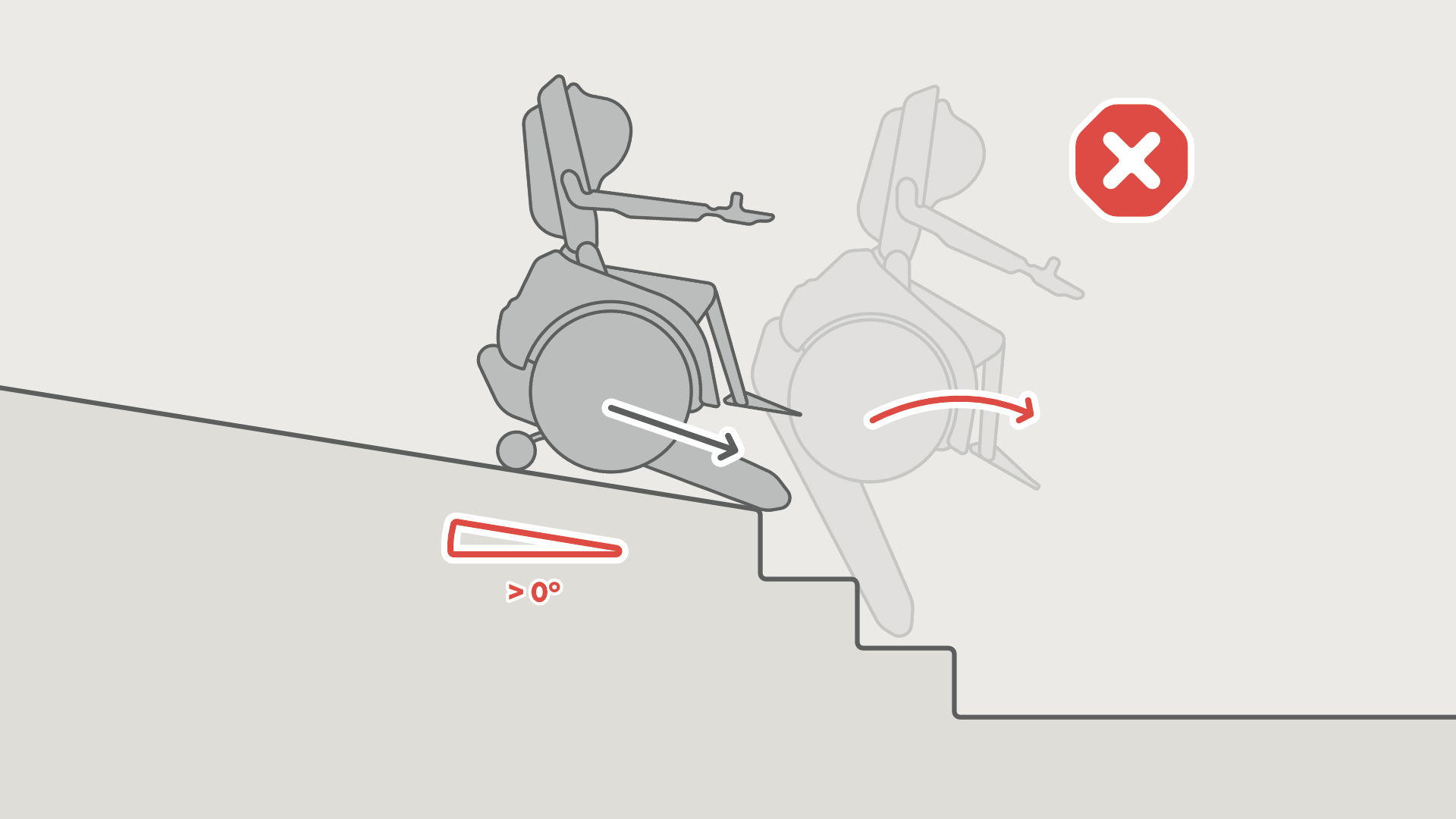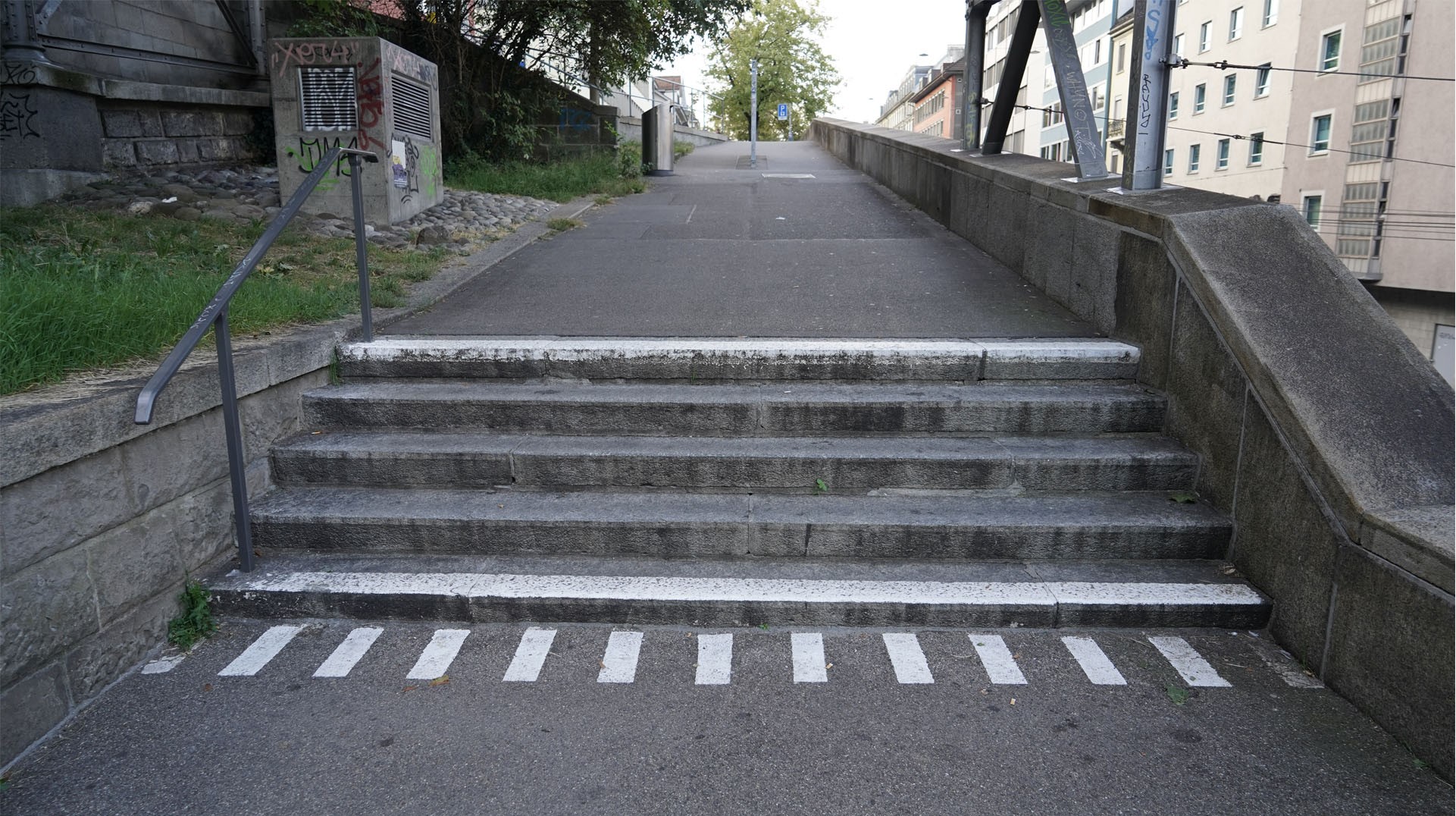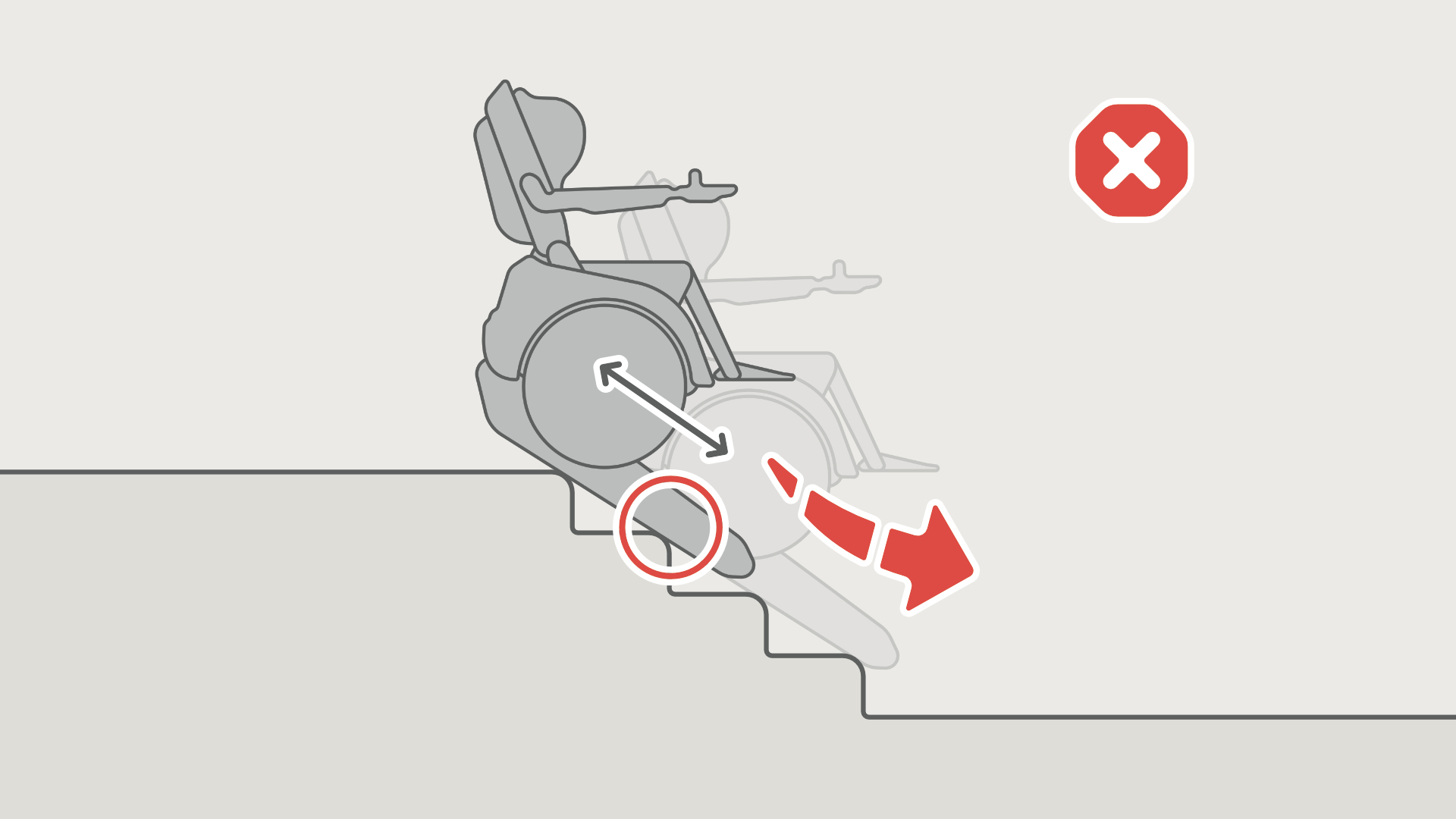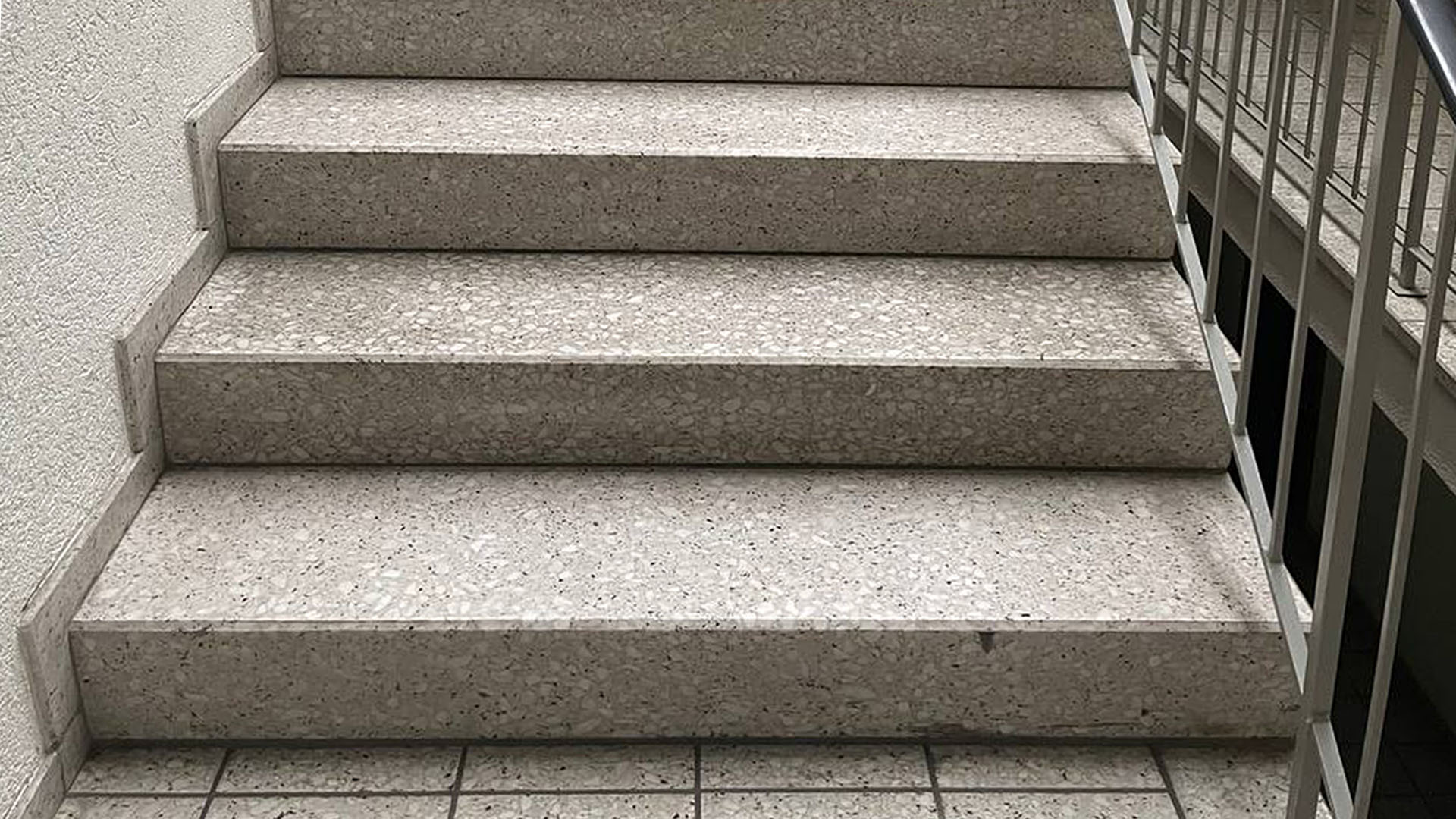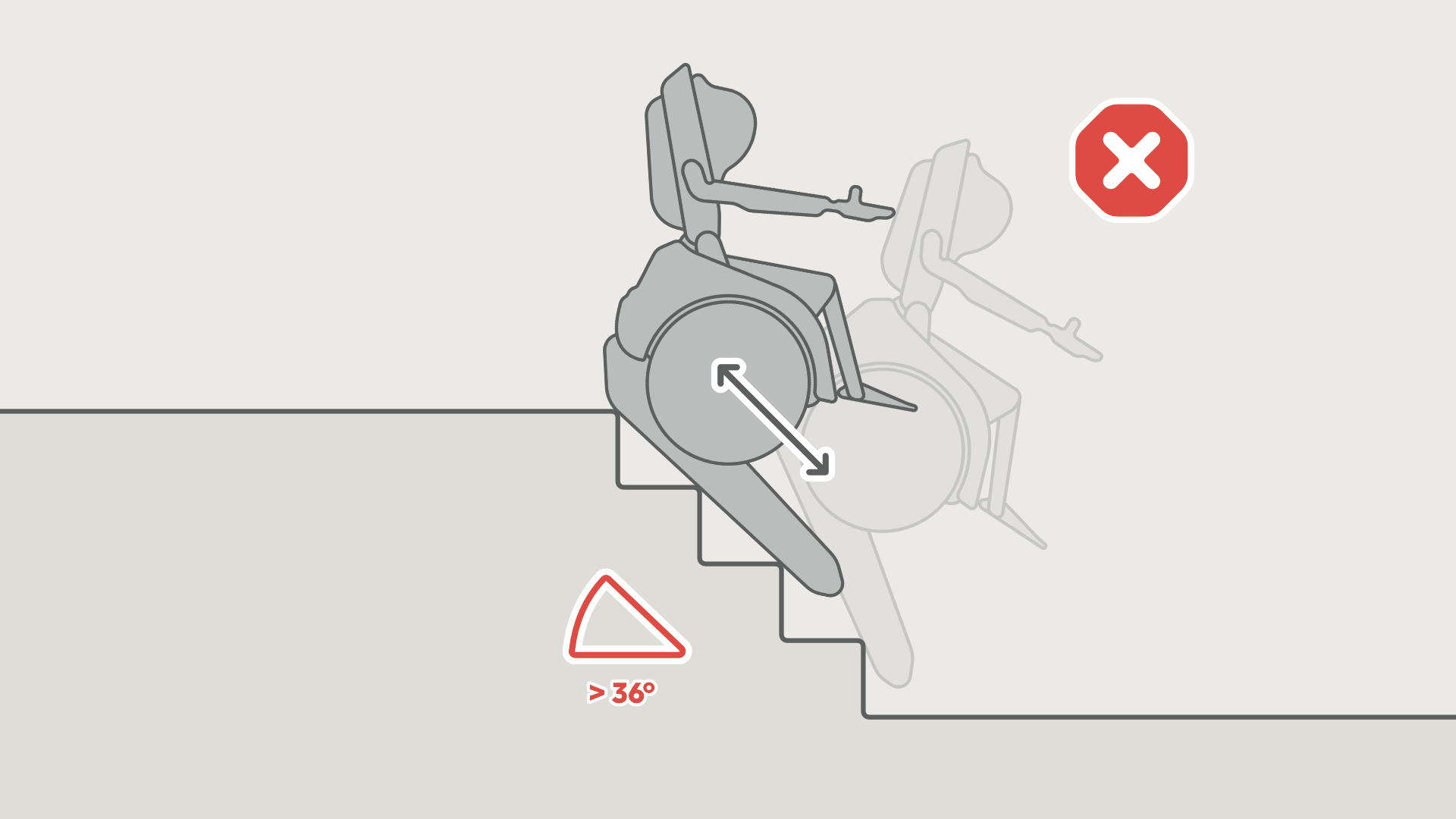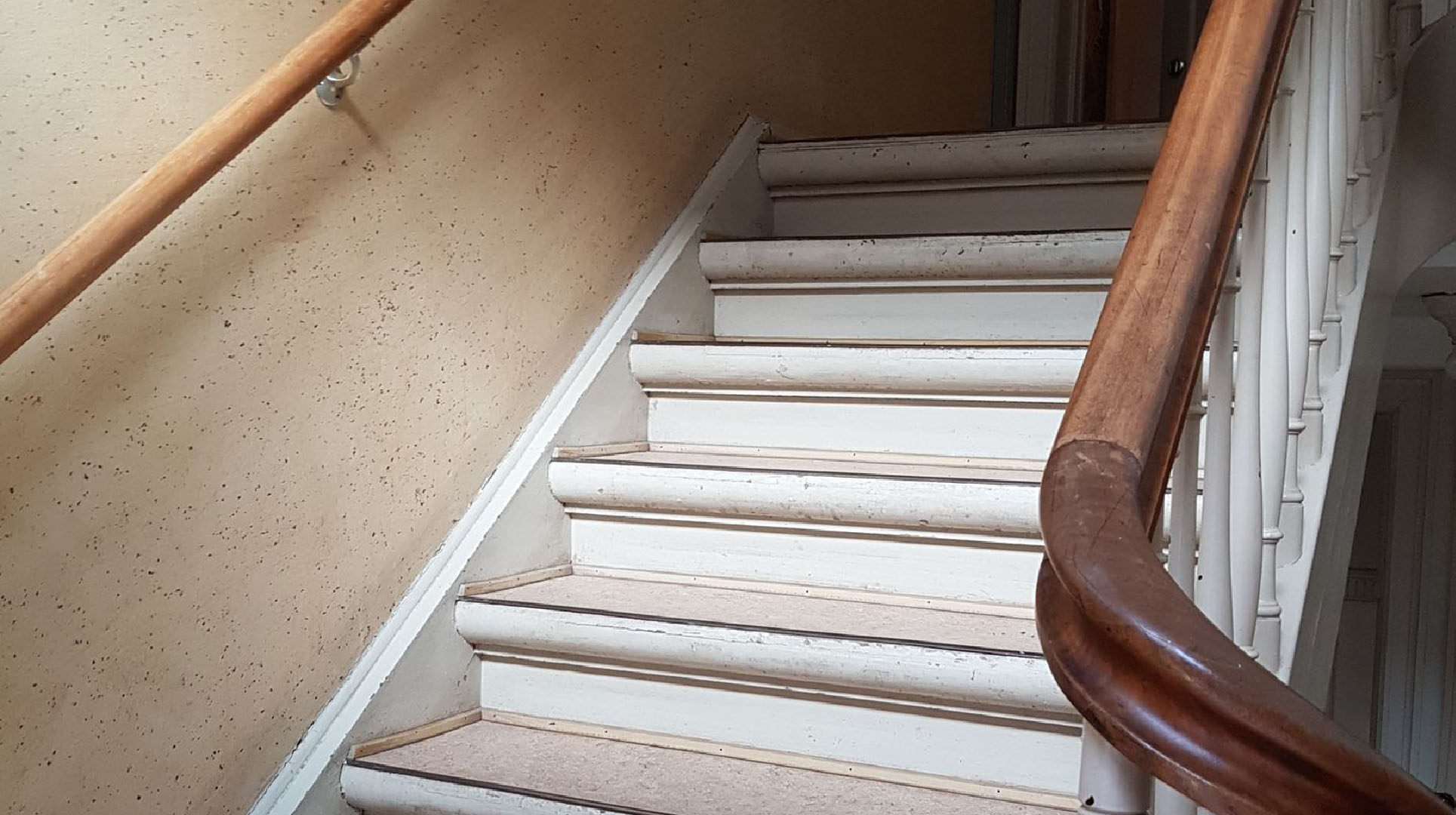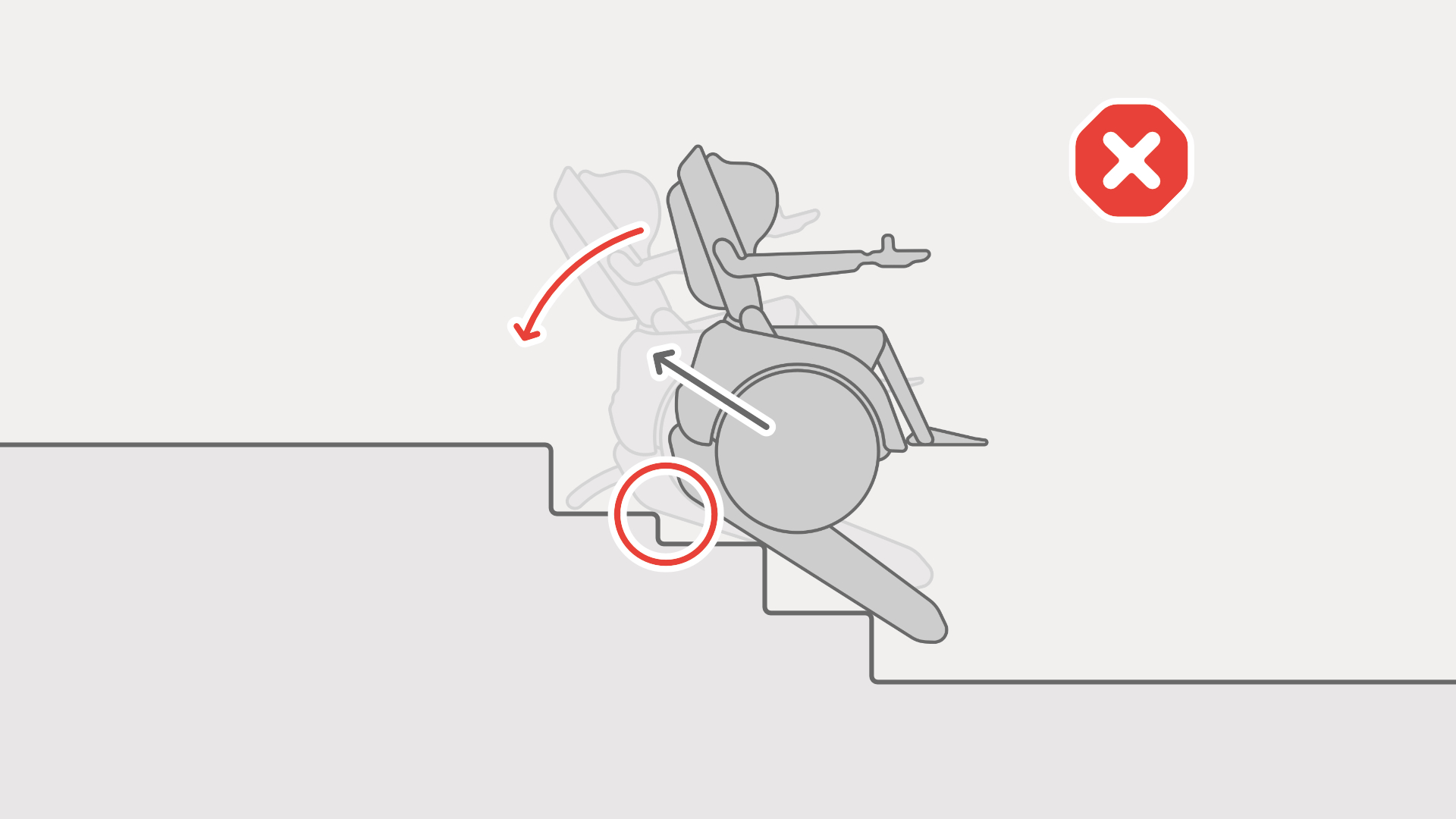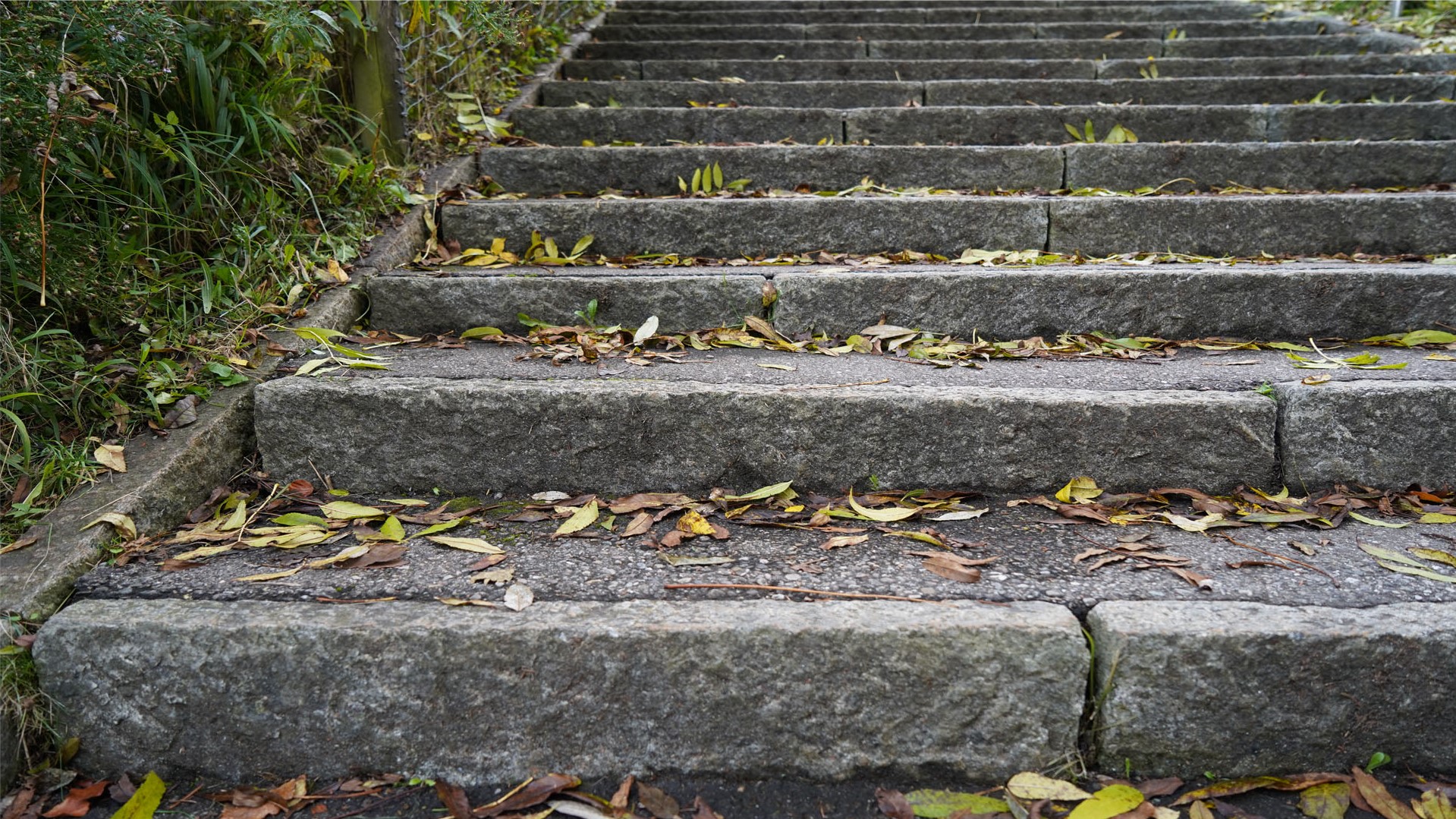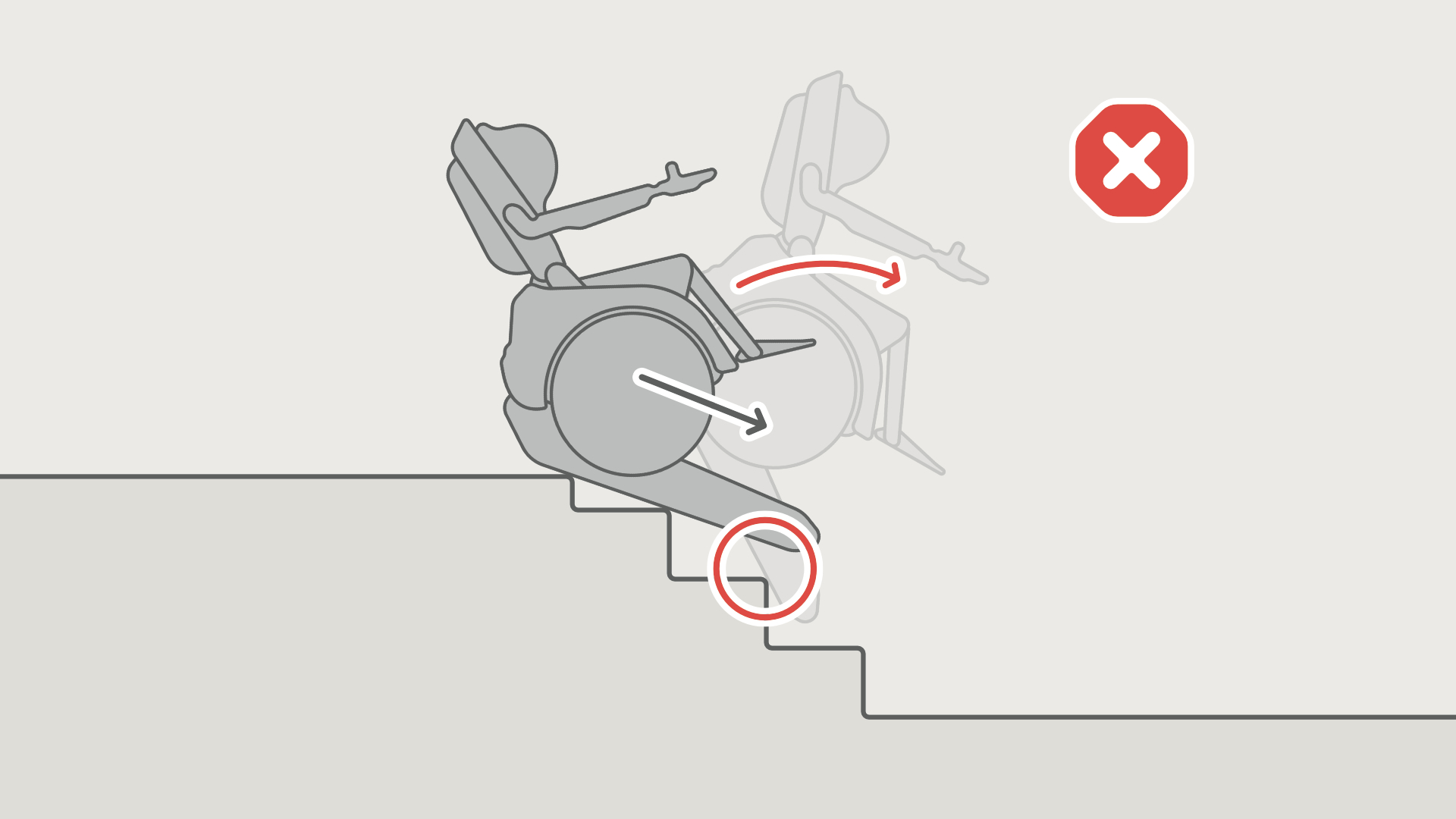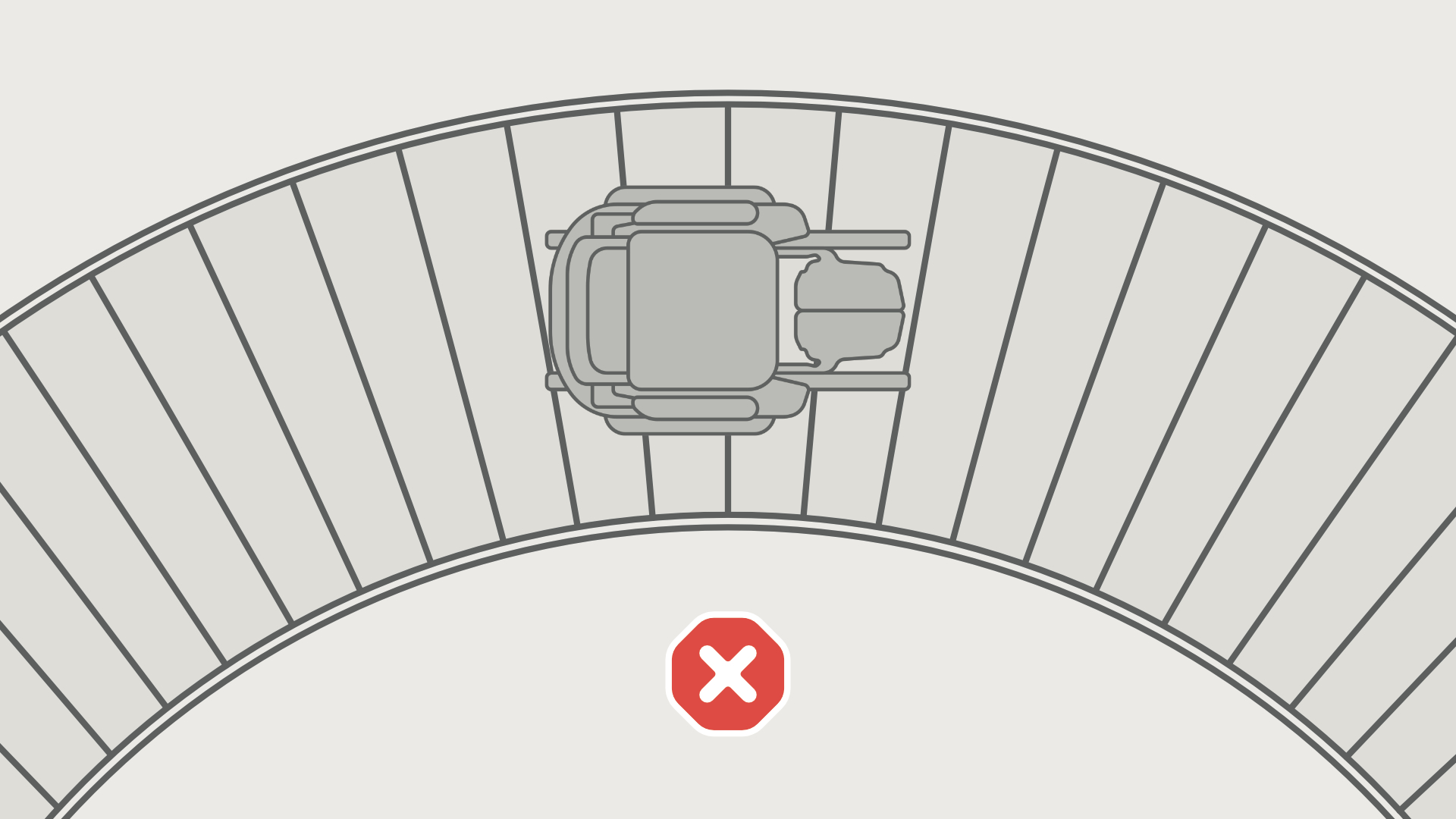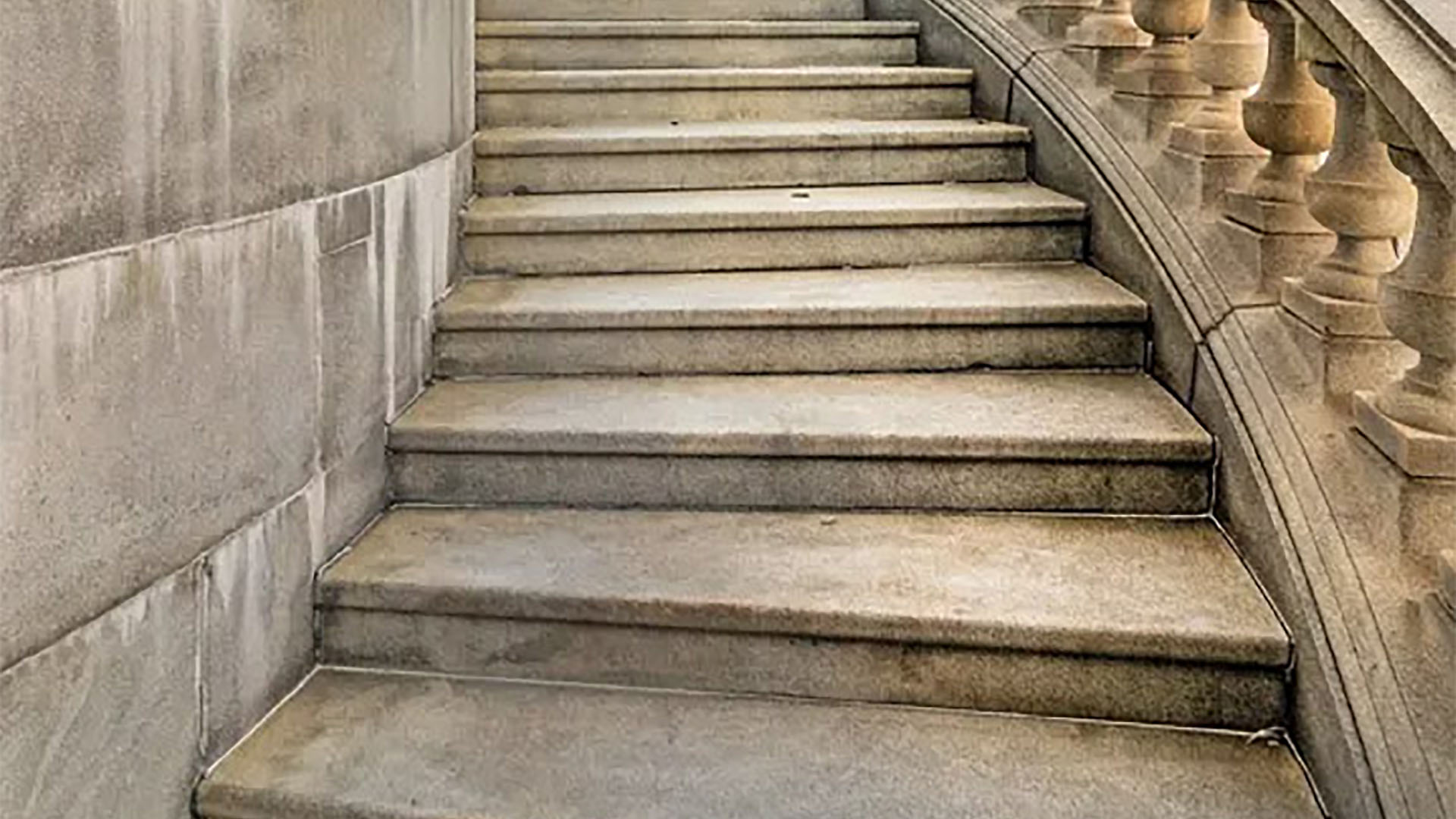Unsuitable Stairs
Scewo BRO is not suitable for the following types of stairs. Refrain from climbing stairs such as:
Spiral stairs
Moving stairs
Damp or wet metal stairs
Damp or wet stairs with very rounded edges
Stairs covered in snow or ice
Stairs with a reduced load capacity of less than 300 kg
Stairs with angles that exceed the permissible specifications (see Technical Specifications)
Stairs featuring steps of varying height and therefore changing incline
Stairs featuring an inclined platform that is smaller in length than the “minimum landing size” specified in Technical Specifications both below and above the stairs.
Stairs that do not have a horizontal landing | |||
|
| ||
If there is a slope in front of the top of the stairs, the inclination of the stairs may be measured incorrectly. BRO could tip forward. | |||
Stair with an inclined top or bottom landing | |
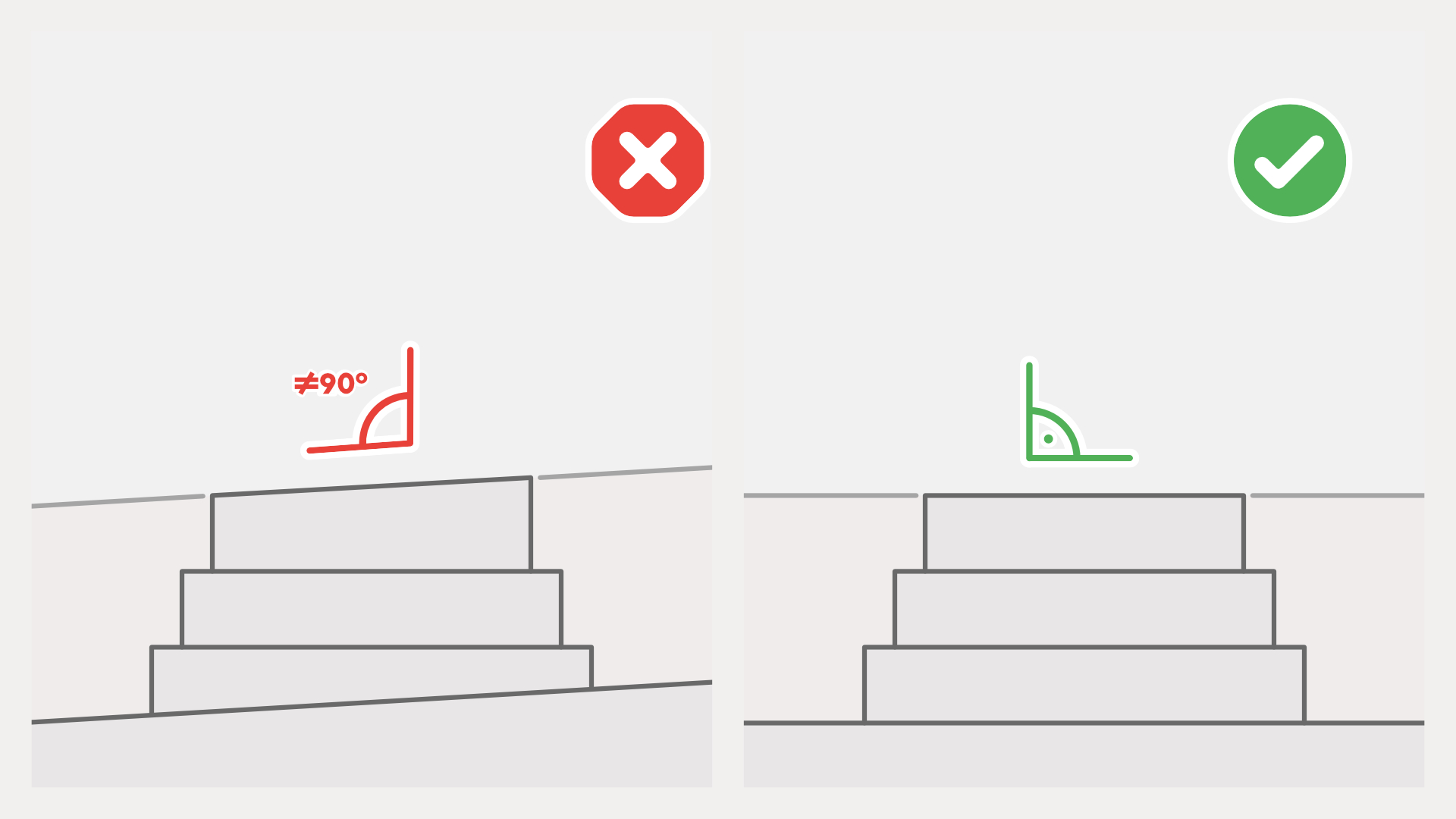 | 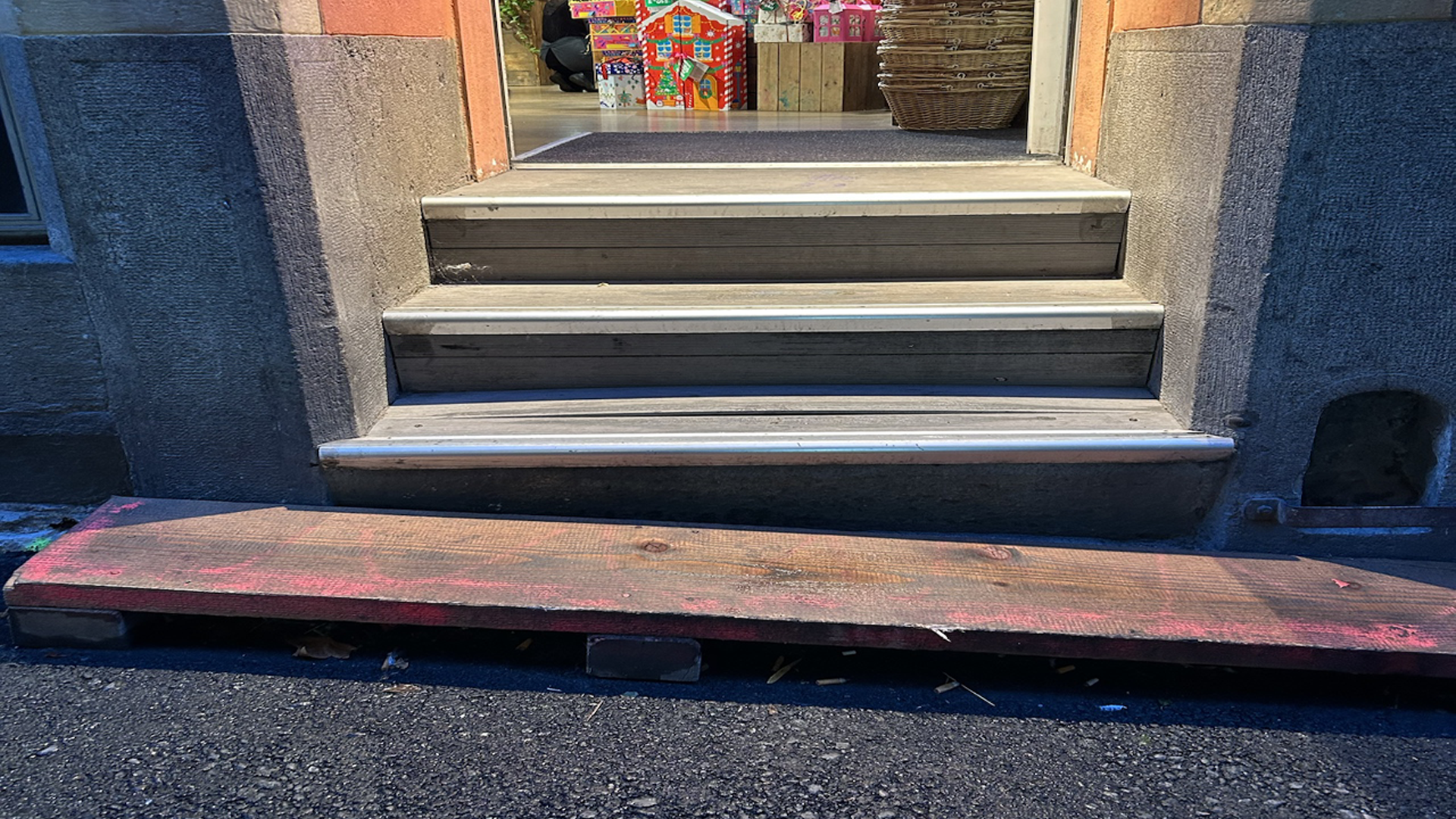 |
If the upper or lower landing of a stair is inclined, BRO will refuse the transition. Therefore, you could become stuck in this situation and can no longer go up or down. Please ensure that both landings are always completely flat (0°). | |
Slippery tracks and surfaces | |||
|
| ||
BRO can slip on the stairs under the following conditions: wet, dirty or worn tracks, damp steps (also covered with snow or ice) especially with rounded edges, stairs with loose carpet. | |||
Do not climb stairs if the tracks or surfaces of the stairs are slippery
Never climb stairs if you are unsure if the traction of the tracks is sufficient to ascent or descend them safely. You could slide down the stairs at high speed and injure yourself or others. Factors that significantly affect traction include:
Damp tracks (e.g. after driving (in drive mode) in rain or snow).
Stairs with varying step heights (especially stairs that steepen as you descend them).
Dirty tracks (e.g. after driving on gravel, mud or oily ground).
Heavily worn tracks
Rounded edges of stairs
Damp stairs
Damp, finely polished stone stairs (e.g. marble or exposed concrete)
Damp wooden stairs
Heavily worn, rounded stairs
Damp metal stairs
Carpet
Snow or ice on the stairs
If you are unsure if the surface of the stairs will provide enough traction, do not climb them.
Stairs with heavily rounded edges | ||
| 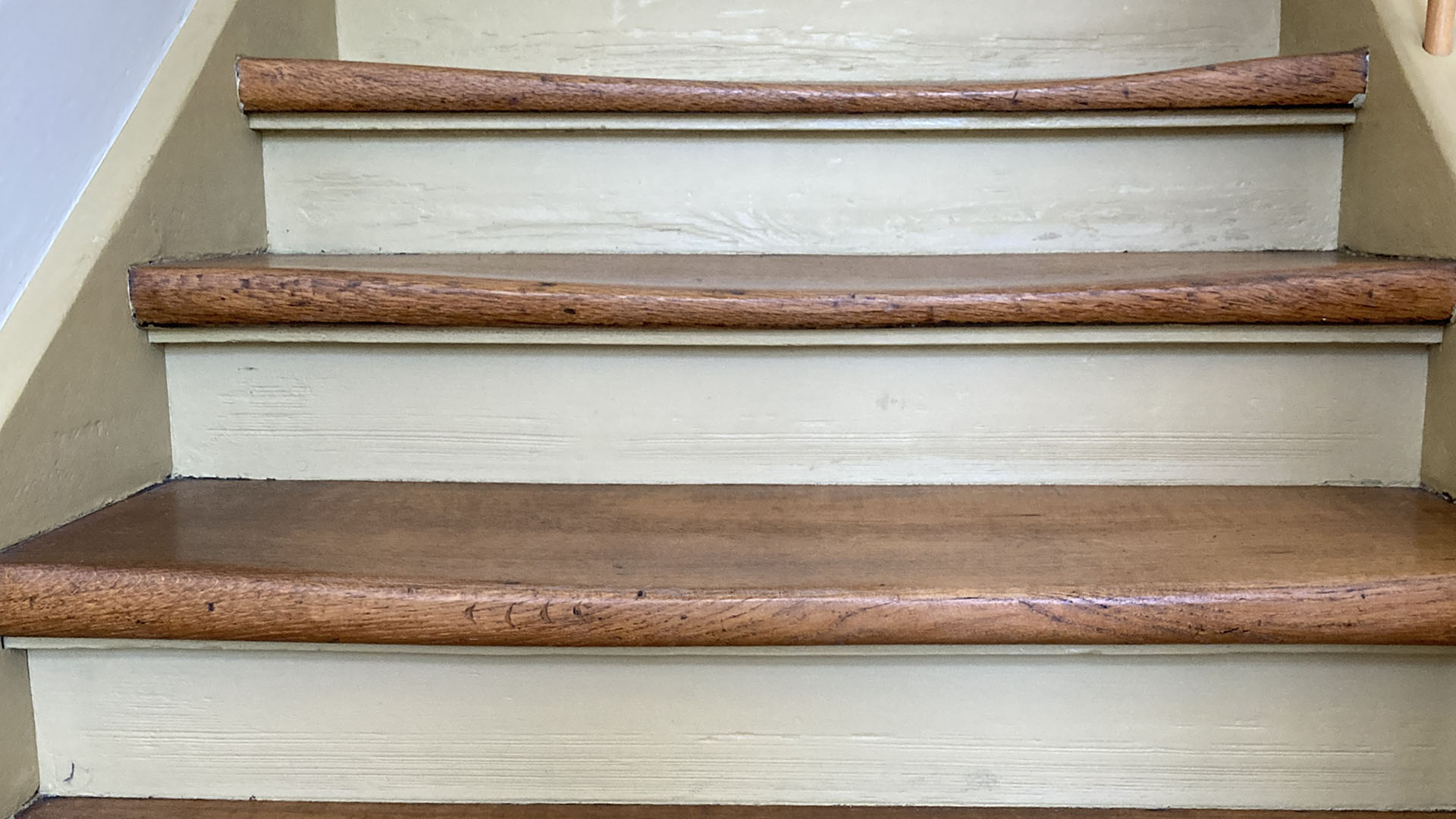 | |
Stairs with heavily rounded edges can be slippery. Especially if the stairs are made of materials that do not provide good traction for the tracks, such as wood or marble. | ||
Steep stairs | |||
|
| ||
Stairs with an inclination greater than 36° are too steep for BRO. The stairs in the image on the right have an incline of 39°. You could potentially fall down these stairs. Most stairs have an incline of approximately 30°. Please pay close attention to the notifications on the app and the control panel. | |||
Climbing up stairs with varying step heights | |||
|
| ||
On stairs that become flatter as you go up, BRO tilts backwards and the Anti-Tip-System (ATS) is triggered. | |||
Climbing down stairs with varying step heights | ||
| 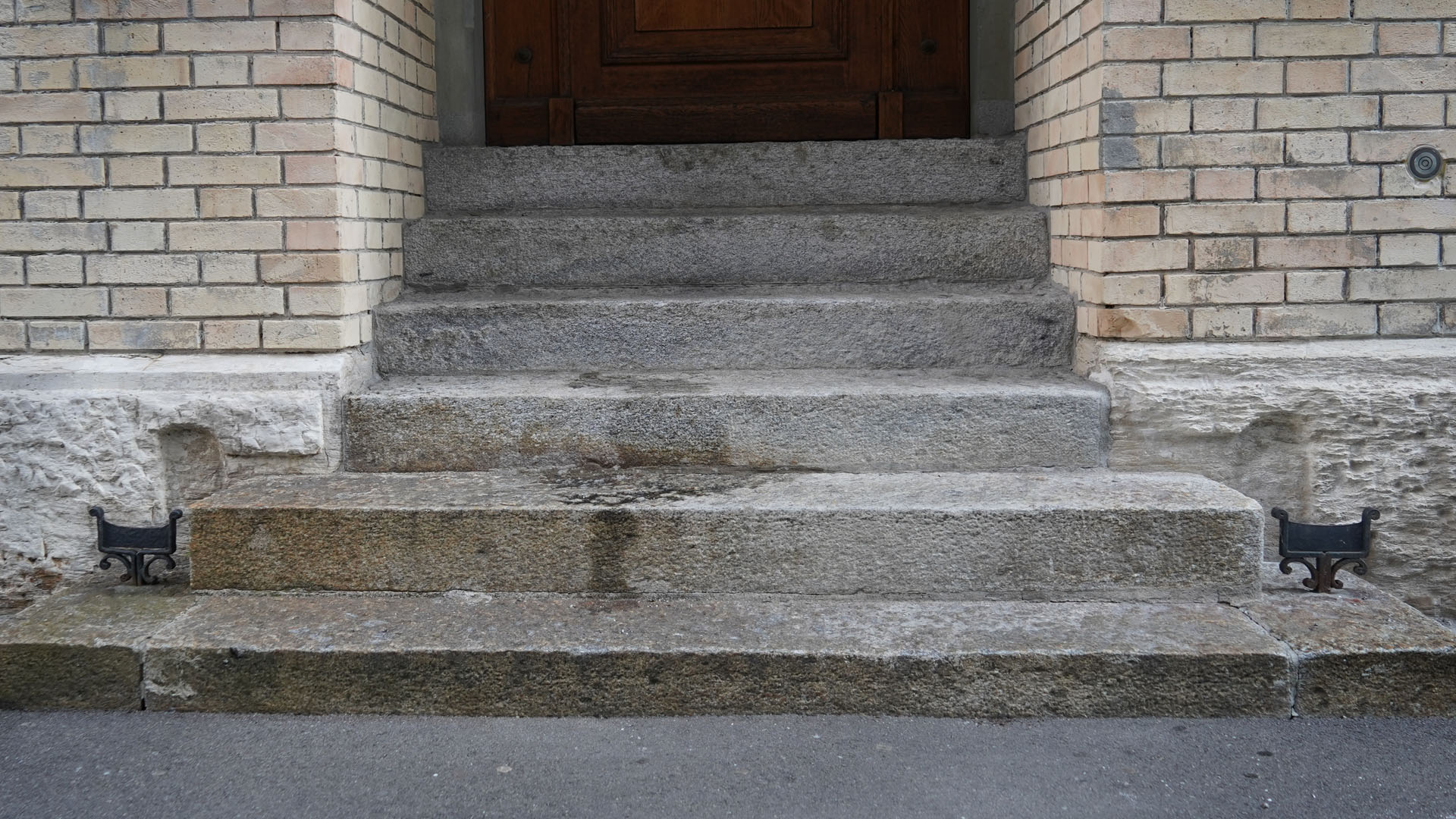 | |
On stairs that become steeper as you descend, BRO can tip forward. | ||
Do not climb stairs with varying step heights
Stairs with varying step heights may be hazardous, especially when descending (when the stairs steepen - even if it is the top step, which is not as high as the subsequent ones). Do not climb stairs like these. In the worst case scenario, you could tip forward and injure yourself badly!
U-shaped stairs | |||
|
| ||
Unfortunately, BRO cannot drive spiral and U-shaped stairs. | |||
Escalators | |
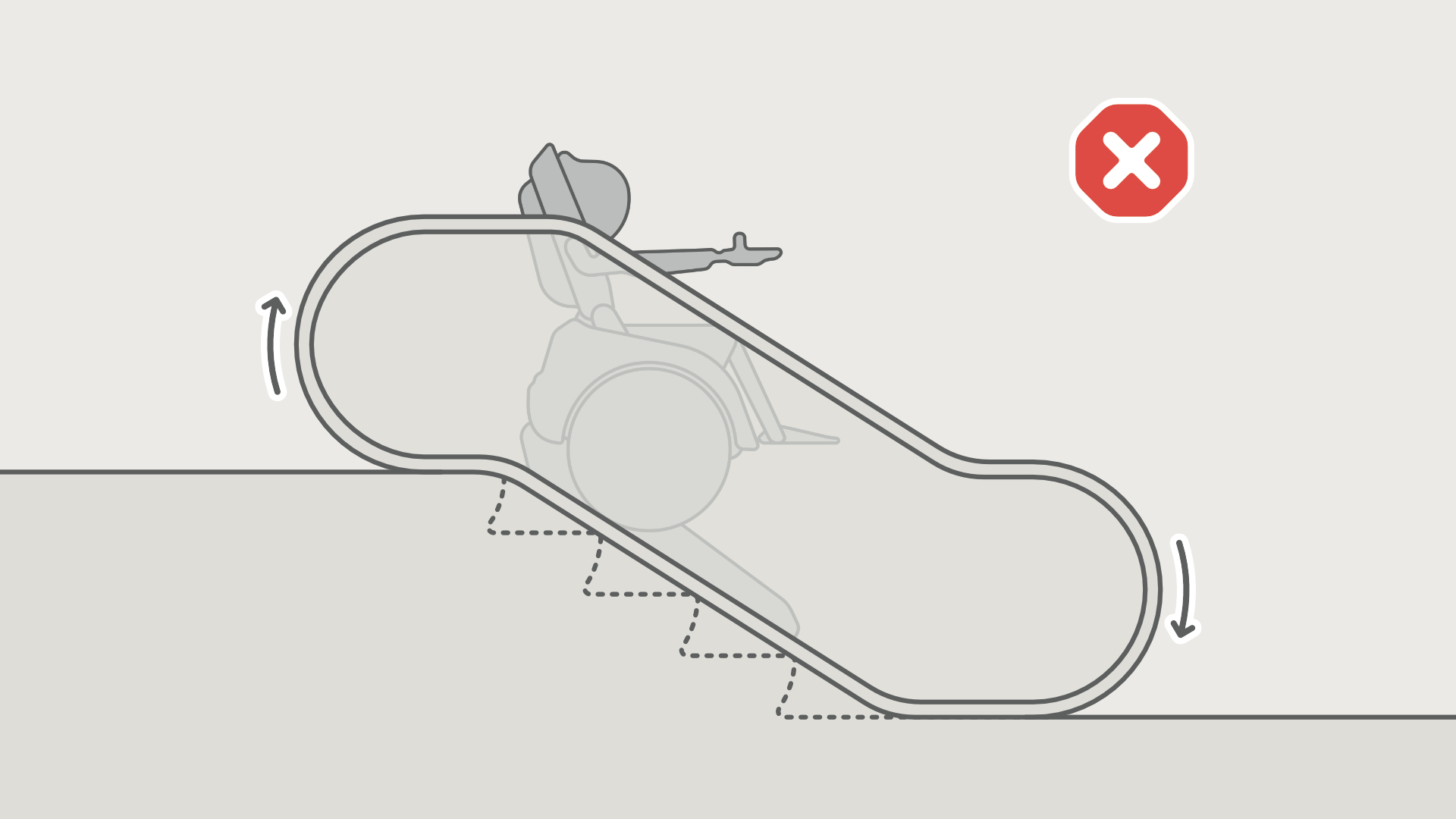 | 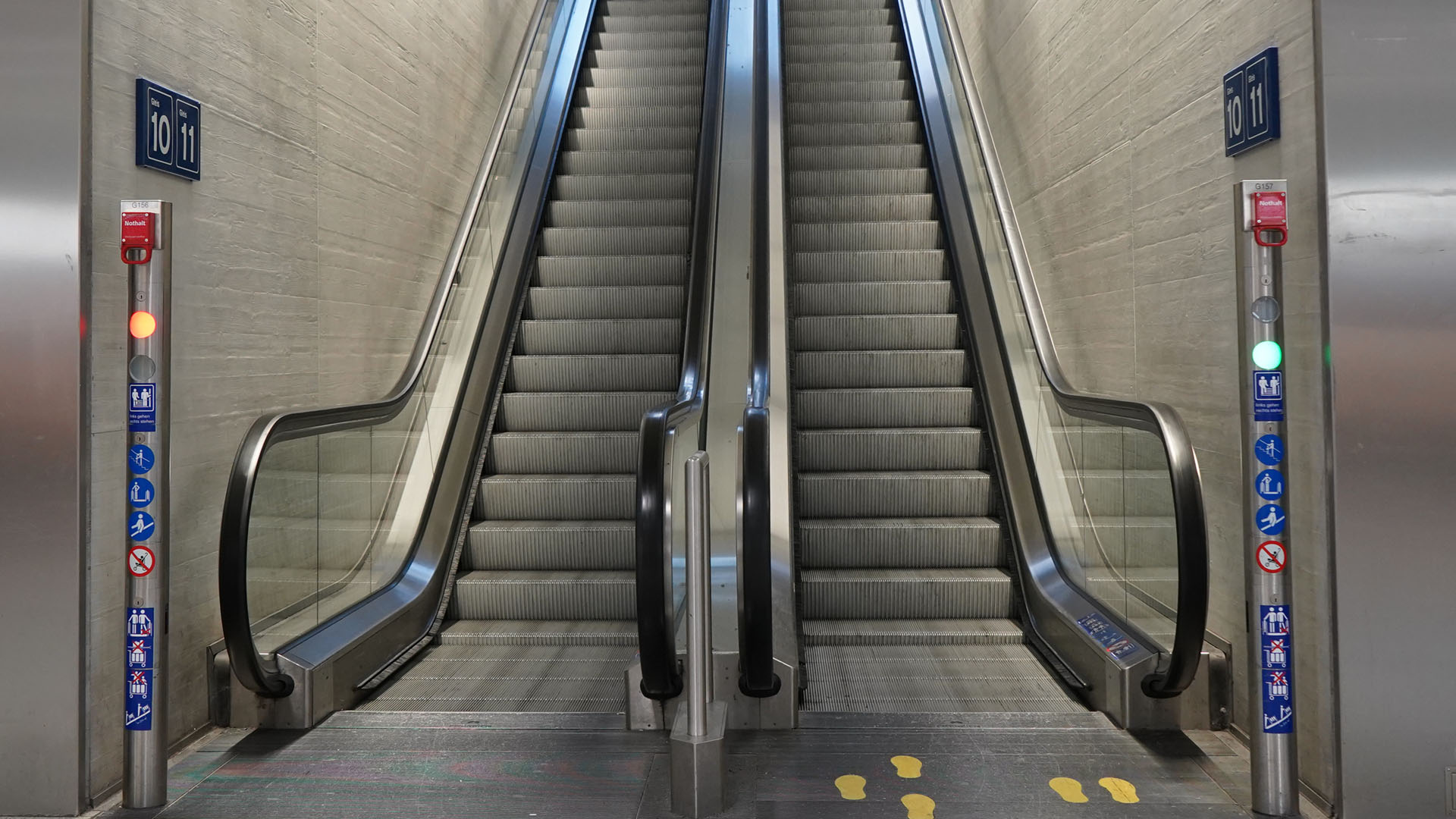 |
Stair detection and mode transitions do not work quickly enough on the escalator. | |
Do not attempt to climb high obstacles!
Stair landings and other obstacles that are higher than the maximum specified obstacle height (see, Technical Specifications), should never be climbed.
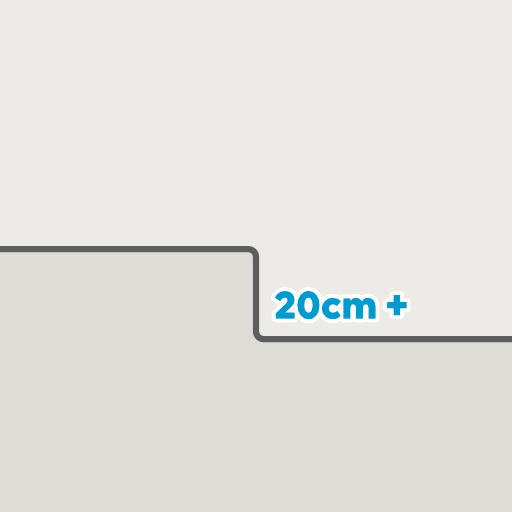 |
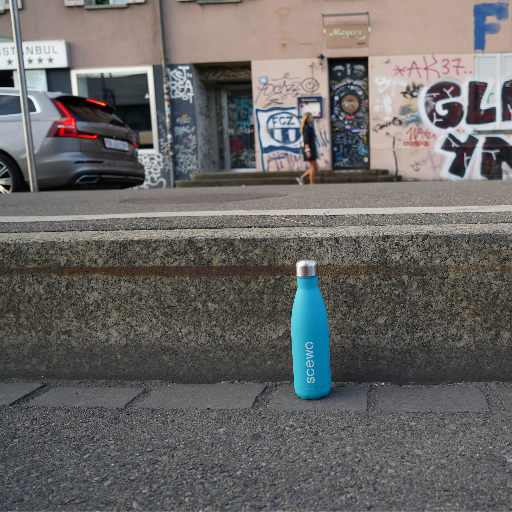 |
